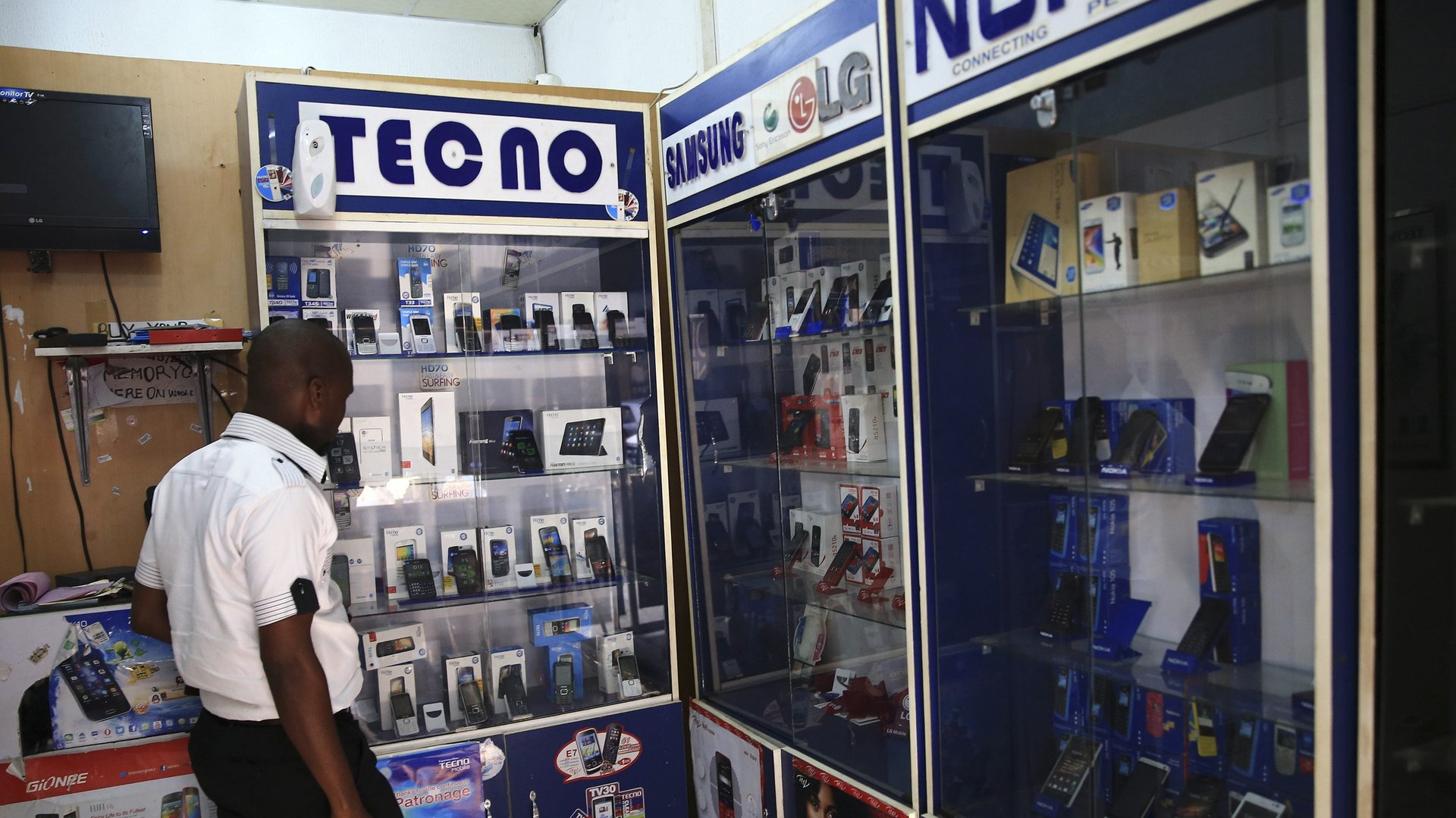Samsung is making a comeback but China’s Transsion is still Africa’s top phone maker
Shenzhen, China-based Transsion is still the top-selling phone maker in Africa, according to market data from IDC. Transsion’s brands, including Itel, Tecno and Infinix, jointly dominate the feature phone space with 64% of unit shipments in the third quarter of this year. The company’s brands also maintain the lead for smartphones accounting for 36.2% of shipments, keeping with the trend since it first overtook Samsung as the continent’s top phone maker in 2017.


Shenzhen, China-based Transsion is still the top-selling phone maker in Africa, according to market data from IDC. Transsion’s brands, including Itel, Tecno and Infinix, jointly dominate the feature phone space with 64% of unit shipments in the third quarter of this year. The company’s brands also maintain the lead for smartphones accounting for 36.2% of shipments, keeping with the trend since it first overtook Samsung as the continent’s top phone maker in 2017.
But Samsung isn’t going away quietly. The Korean phone giant leads the continent’s phone market in dollar terms suggesting its phones sell at higher prices on average. In addition, it has also now stepped up competition with Transsion in the market segment for lower-priced smartphones.
Samsung recorded a 61.4% growth year-on-year with phones priced between $100 and $200 in the third quarter of the year, a move which IDC says has “pushed Chinese brands to offer more affordable devices.”
But toppling Transsion will take some doing given the Chinese giant’s exclusive focus on the African market, unlike Samsung. Beyond pricing, Transsion has built its business over a decade by producing phones with locally-tailored features (including multiple SIM slots and camera technology calibrated to darker skin tones) from its manufacturing base in Ethiopia. Transsion’s business premise and proven success on the continent resulted in a multi-billion dollar Shanghai IPO in September.
Ultimately, the tussle for market share among phone makers will result in increasingly cheaper models and likely fuel more growth for smartphone shipments on the continent.
IDC predicts the mobile phone market will reach 218.2 million units by the end of 2019 with smartphone shipments forecast to grow by 3.2% this year while “feature phone shipments are expected to remain flat” with a meager 0.1% growth rate.
Consumer spending also shows that lower priced smartphones (defined as costing below $200) particularly represent a sweet spot for phone makers on the continent: phones in that price bracket represented nearly 90% of all smartphone sales in the third quarter of the year.
Sign up to the Quartz Africa Weekly Brief here for news and analysis on African business, tech and innovation in your inbox